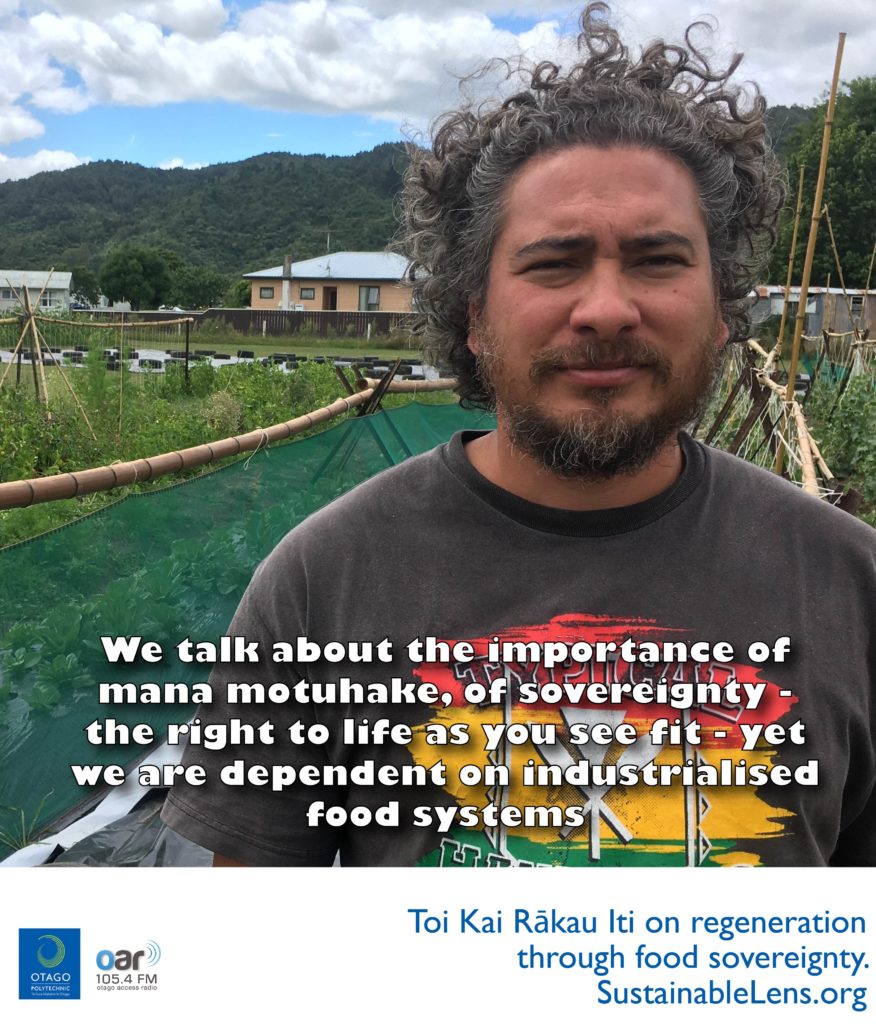
Toi Kai RÄkau Iti is of TÅ«hoe, Waikato and Te Arawa decent. An actor and documentary maker, he is back home in TÅ«hoe working with his community, HÄpu and Iwi. We talk about food sovereignty – agroecological regenerative systems which intersect western horticultural science with traditional TÅ«hoe ecological knowledge and practice.
Talking points
Transitioning to a place of wellbeing
Te Reo – the magic of nature, codified in language
We talk about the importance of mana motuhake, of sovereignty – the right to life as you see fit – yet we are dependent on industrialised food systems
I come from a tradition of exposing the theatre of power, recoginising the power of spectacle, now we are developing a theatre of community
Food sovereignty is climate change
Gardening as performance art – this is a show garden, a manifestation of energy.
We see intergenerational dysfunction, we say karakia to the land, but then sit down to industrialised sausages.
The layers of colonisation are subtle, deep and thick.
In growing stuff – not just food – you can see the energy
Questions to end (short answers)
Definition: It goes on
Success: Moving home
Superhero: Bringing value
Activist: Yes. Do stuff. Subversive
Motivation: Doing stuff for people
Challenge: Creating space for healing
Miracle: An awakening.
